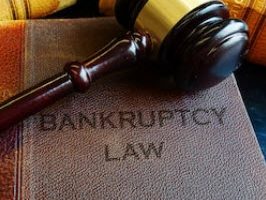Does Chapter 13 Erase Back Taxes?

Although the days of extensive tax audits are gone, the IRS is still very aggressive in back tax cases. Furthermore, the government has many collections tools that are unavailable to private debt collectors. For example, most moneylenders must obtain court orders before they can garnish wages. But the IRS can garnish wages unilaterally, and in some cases, with almost no notice.
At its core, Chapter 13 bankruptcy is really about taking control of runaway financial problems. Instead of the IRS, or any other creditor, dictating repayment terms, you have choices. In a Chapter 13, those choices are basically discharging the debt or paying the tax debt.
This procedure does more than provide options. Chapter 13 also stops adverse action. That includes the aforementioned wage garnishment as well as tax audits, court cases, and other collection activities. Generally, the Automatic Stay remains in effect until the bankruptcy closes. That level of protection is simply unavailable anywhere else.
Discharging Tax Debt in an Illinois Bankruptcy
In some respects, income taxes are like credit card debt. Both these unsecured obligations do not involve security or property. But the government usually has a much greater standing in bankruptcy than private lenders. For example, Domestic Support Obligations, like alimony and child support, are usually not dischargeable under any circumstances. So, tax debt is only dischargeable in a Chapter 13 under limited circumstances:
- – Two Years: The tax returns must have been on file for at least two years. So, whether the taxpayer filed the returns timely or not, there is always at least a two-year waiting period prior to discharge.
- – Three Years: In most cases, the waiting period is even longer. Typically, the tax debt must be at least three years old. Bear in mind the Tax Day is not on April 15 every year. And, the IRS has been known to challenge discharge over one or two days.
- – 240 Days: The tax collector must not have assessed the debt in the last 240 days. Generally, if the taxpayer has not received a bill in the last eight months, the IRS has probably not assessed the debt during that time period.
These same rules apply to delinquent state income taxes. Non-income taxes, such as trust fund taxes and property taxes, are almost always nondischargeable.
Paying Back Taxes through Chapter 13
Typically, the IRS offers a wide range of repayment plans. But many of these programs have very specific qualifications. The innocent spouse provision is a good example. Sometimes, one spouse may know nothing about owed taxes, but the government will still demand repayment. If the IRS denies the taxpayer’s application, there is no appeal.
Fortunately, debtors usually have a great deal of discretion as to what debts they can include in the Chapter 13 repayment plan. The repayment plan can usually include back taxes. There are no income or other legal qualifications. Furthermore, the Chapter 13 repayment plan can last up to five years. The penny-pinching IRS almost never gives taxpayers that much time.
Connect with Experienced Lawyers
Chapter 13 helps debtors take care of back taxes. For a free consultation with an experienced chapter 13 bankruptcy attorney in Chicago, contact the Bentz Holguin Law Firm, LLC. We routinely handle matters in Illinois and Indiana.
Resource:
irs.gov/businesses/small-businesses-self-employed/information-about-wage-levies


